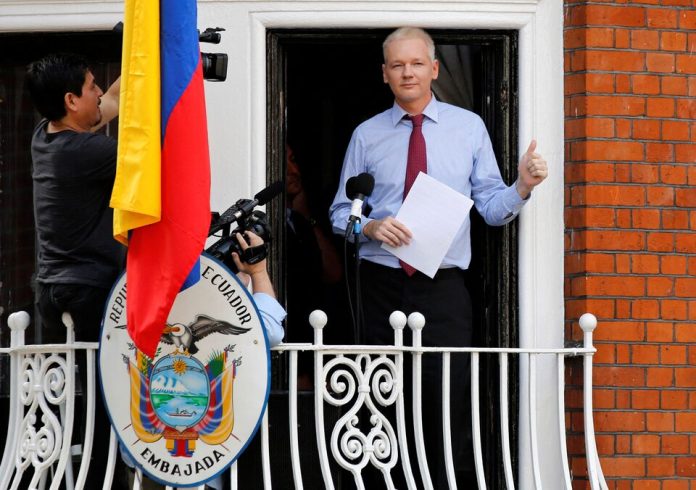A British court on Monday could make a final ruling on whether WikiLeaks founder Julian Assange will face US extradition for the massive leak of classified US documents, Reuters reports.
Two judges at London’s High Court are set to rule on whether the court has satisfied US assurances that Assange, 52, will not face the death penalty and can rely on his First Amendment right to free speech if he is tried in the US for espionage.
Assange’s lawyers say he could be on a plane across the Atlantic within 24 hours of the decision, could be released from prison, or his case could drag on again for months of court battles. His wife Stella said last week:
I have the sense that anything could happen at this stage. Julian could be extradited, or he could be freed.
She also added that her husband hopes to be present in court for the crucial hearing.
The greatest security breach in the US military’s history
WikiLeaks has released hundreds of thousands of classified US military documents about Washington’s wars in Afghanistan and Iraq – the largest security breach of its kind in US military history – as well as many diplomatic dispatches.
In April 2010, WikiLeaks published a classified video depicting a US helicopter attack in 2007. The attack killed dozens of people in the Iraqi capital Baghdad, including two employees of the Reuters news agency.
US authorities want to put Australian-born Assange on trial on 18 charges, almost all under the Espionage Act. They claim his actions with WikiLeaks were reckless, harmed national security and endangered the lives of agents.
His many supporters around the world call the prosecution a travesty, an attack on journalism and free speech, and revenge for the embarrassment caused. Calls to drop the case have ranged from human rights groups and some media outlets to Australian Prime Minister Anthony Albanese and other political leaders.
Assange first went behind bars in the UK in 2010 on a Swedish warrant in connection with allegations of sexual misconduct that later proved unsubstantiated. Since then, he has been under house arrest multiple times, for seven years at the Ecuadorian embassy in London, and since 2019 at the high-security Belmarsh prison, most recently awaiting a decision on his extradition. Stella Assange, who was originally part of his legal team and married him in Belmarsh in 2022, said:
Every day since the seventh of December 2010 he has been in one form of detention or another.
If the court orders extradition
If the Supreme Court decides to extradite him to the US, his attorneys will immediately go to the European Court of Human Rights to seek an emergency ban on deportation until the court can hear his case at a later date. On the other hand, if the judges reject the US submissions, he can appeal the extradition case on three grounds, and that may not happen until next year.
It is also possible that the judges will decide that Monday’s hearing should consider not only whether he can appeal, but also the merits of the appeal. If, under these circumstances, the decision is in his favor, he could go free.
Stella Assange has also stated that she will continue to fight for his freedom, no matter the outcome of the case. If he goes free, she plans to follow him to Australia or wherever he is safe. If he faces extradition to the US, however, she said all the psychiatric reports presented in court show that he is at very serious risk of suicide. She told Reuters:
We live from day to day, from week to week, from decision to decision. This is a way that we’ve been living for years and years. This is just not a way to live — it’s so cruel. And I can’t prepare for his extradition — how could I? But if he’s extradited, then I’ll do whatever I can, and our family is going to fight for him until he’s free.
